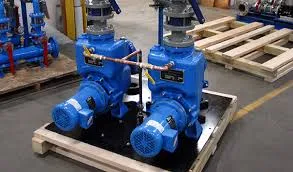Croatian
- Afrikaans
- Albanian
- Amharic
- Arabic
- Armenian
- Azerbaijani
- Basque
- Belarusian
- Bengali
- Bosnian
- Bulgarian
- Catalan
- Cebuano
- Corsican
- Croatian
- Czech
- Danish
- Dutch
- English
- Esperanto
- Estonian
- Finnish
- French
- Frisian
- Galician
- Georgian
- German
- Greek
- Gujarati
- Haitian Creole
- hausa
- hawaiian
- Hebrew
- Hindi
- Miao
- Hungarian
- Icelandic
- igbo
- Indonesian
- irish
- Italian
- Japanese
- Javanese
- Kannada
- kazakh
- Khmer
- Rwandese
- Korean
- Kurdish
- Kyrgyz
- Lao
- Latin
- Latvian
- Lithuanian
- Luxembourgish
- Macedonian
- Malgashi
- Malay
- Malayalam
- Maltese
- Maori
- Marathi
- Mongolian
- Myanmar
- Nepali
- Norwegian
- Norwegian
- Occitan
- Pashto
- Persian
- Polish
- Portuguese
- Punjabi
- Romanian
- Russian
- Samoan
- Scottish Gaelic
- Serbian
- Sesotho
- Shona
- Sindhi
- Sinhala
- Slovak
- Slovenian
- Somali
- Spanish
- Sundanese
- Swahili
- Swedish
- Tagalog
- Tajik
- Tamil
- Tatar
- Telugu
- Thai
- Turkish
- Turkmen
- Ukrainian
- Urdu
- Uighur
- Uzbek
- Vietnamese
- Welsh
- Bantu
- Yiddish
- Yoruba
- Zulu
Telephone: +86 13120555503
Email: frank@cypump.com
stu . 11, 2024 08:47 Back to list
septic submersible pump
Septic Submersible Pumps Essential Tools for Wastewater Management
In the realm of wastewater management, septic systems play a crucial role in ensuring that residential and commercial sewage is treated and disposed of properly. One of the key components of these systems is the septic submersible pump, a device designed to efficiently move wastewater from the septic tank to the drain field or other disposal areas. This article explores the significance, functioning, and maintenance of septic submersible pumps, highlighting their importance in effective sewage management.
Understanding Septic Submersible Pumps
A septic submersible pump is a specific type of pump used in septic systems to handle wastewater that has already gone through the initial treatment process in the septic tank. Unlike conventional pumps, submersible pumps are uniquely designed to operate underwater, which offers several advantages. These pumps are typically sealed hermetically to prevent water ingress into the electrical components, ensuring reliability and safety.
Submersible pumps are installed in a sump pit or directly in the septic tank. When the wastewater level rises to a predetermined height, the pump is activated and works by converting electrical energy into mechanical energy, enabling it to move sludge and liquids efficiently. These pumps can handle solids present in the wastewater, allowing them to transport effluent to higher elevations or longer distances where gravity alone cannot do the job.
The Importance of Septic Submersible Pumps
The primary function of septic submersible pumps is to transport treated wastewater to the drain field or other disposal sites
. This role is vital for several reasons1. Preventing Backups One of the most critical functions of a septic submersible pump is to prevent sewage backups into homes or businesses. Regular operation of these pumps ensures that the septic system functions correctly, reducing the likelihood of overflow or backups that can pose health hazards and environmental risks.
2. Extending System Life By ensuring that the wastewater is disposed of correctly and efficiently, submersible pumps play a role in prolonging the life of an entire septic system. Proper disposal minimizes the risk of clogging in the drain field, which can lead to costly repairs and system replacements.
septic submersible pump

3. Efficiency in Wastewater Management Septic submersible pumps offer high efficiency in transporting wastewater, particularly in situations where elevation changes must be accommodated. Their design allows for seamless operation in homes built on slopes or in areas where gravity would otherwise hinder wastewater flow.
Maintenance of Septic Submersible Pumps
To ensure the longevity and efficient operation of septic submersible pumps, regular maintenance is essential. Here are some key maintenance tips
1. Routine Inspections Inspect the pump regularly for any signs of wear and tear, including frayed cables or unusual sounds during operation. Regular checks can help identify potential issues before they escalate.
2. Cleaning It’s important to clean the sump pit and remove any debris that could clog the pump. Ensure that all filters are free of blockages, allowing for optimal water flow.
3. Check for Obstructions Ensure that no foreign objects such as plastics, fabrics, or non-biodegradable items are entering the septic system. These can cause significant damage to the pump and the system as a whole.
4. Professional Servicing Consider scheduling professional inspections and maintenance at least once a year. Experts can conduct thorough checks and replace any worn parts that may compromise the pump's functionality.
Conclusion
Septic submersible pumps are indispensable components of wastewater management systems. Their ability to efficiently move treated wastewater is crucial for preventing sewer backups and prolonging the lifespan of septic systems. By understanding their functions and implementing effective maintenance practices, homeowners and businesses can ensure that their septic systems operate smoothly, safeguarding both human health and the environment. As we continue to navigate the challenges of wastewater management, investing in reliable septic submersible pumps can make all the difference.
-
Heavy-Duty Mining Sludge Pumps - Wear-Resistant Slurry Handling
NewsAug.02,2025
-
Horizontal Split Case Pump with GPT-4 Turbo | High Efficiency
NewsAug.01,2025
-
ISG Series Pipeline Pump - Chi Yuan Pumps | High Efficiency, Durable Design
NewsAug.01,2025
-
Advanced Flue Gas Desulfurization Pump with GPT-4 Turbo | Durable & Efficient
NewsJul.31,2025
-
ISG Series Vertical Pipeline Pump - Chi Yuan Pumps | Advanced Hydraulic Design&Durable Construction
NewsJul.31,2025
-
ISG Series Vertical Pipeline Pump - Chi Yuan Pumps | Energy Efficient & Low Noise
NewsJul.31,2025










